'The Sims' added a polyamory option. I tried it out.
Boundaries. Jealousy. Intimacy.
These relationship terms are familiar to anyone navigating romance in today's dating hedonistic hellscape. But they're new to "The Sims 4," an EA game that recently updated its free version and debuted a new $39.99 "Lovestruck" expansion pack that's caught up with 2024's cultural conversation around dating – including non-monogamy and polyamory.
"The Sims" came out in 2000, and "The Sims 2" in 2004; I grew up on the latter. The gist: You create a "Sim," or person, picking their likes, dislikes, aspirations, hair and skin color, clothes, what have you. You buy them a home, find them a job, feed them, take care of their needs. They marry a spouse, have children, grow older, die. Choose your own adventure(s) and play until your computer slows down so much you need another.
Now, in this latest version, the relationship dynamics have grown more sophisticated – and complicated. Much like real life, where the cornucopia of dating and romance terms seems to grow by the week.
You can program a Sim's jealous tendencies: Are they OK with someone else flirting with their partner? What about sex (or as the Sims call it: "WooHoo")? Do they desire more than one love in their life? They can also discuss romantic boundaries and ask about attraction. All things we ask about each time we swipe on our phones and make plans to go on a date.
Sims also won't pursue physical intimacy with anyone uninterested in their gender or sexual orientation – a built-in consent lever missing from "The Sims 2," at least. See, too, gender-neutral terms and pronouns. "The team researched a wide range of relationships and partnered with a subject matter expert to inform the work," according to a spokesperson. "They used that knowledge to translate into game design in a way that gives players choices without labels."
Still, I knew what I had to do. I cracked my knuckles, smashed that download button and prayed my computer wouldn't succumb to that spinning wheel of death each time I tried to play. What I learned: In reality, people's beliefs about monogamy and non-monogamy aren't as malleable.
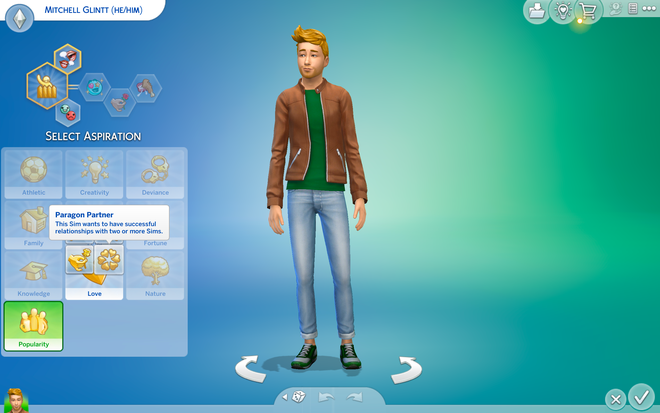
Great question:Why are we so obsessed with polyamory?
Situationships galore on 'The Sims'
When I clicked "The Sims 2" icon as a kid, I couldn't care less about building homes. Instead, for hours and hours, I swindled, seduced and played God.
I killed people off for dramatic effect; instructed everyone to cheat on their spouses and played puppet master with characters' fortunes. A dream for a budding writer and daytime soap opera lover eager to tell stories.
That dream – now as a journalist who writes stories, albeit true ones – continued, but with new twists. I created a nonbinary character and a gay male character, each with aspirations of romance and a disregard for traditional monogamous relationship structures. This better reflected my own reality, where I see couples of all kinds in my life create their own journeys, not to mention the sources I interview for stories.
I watched Sims flirt with their neighbors and encouraged dalliances left and right. Created friends-with-benefits situationships called "WooHoo partners." It was like any other night at a bar out with my friends.
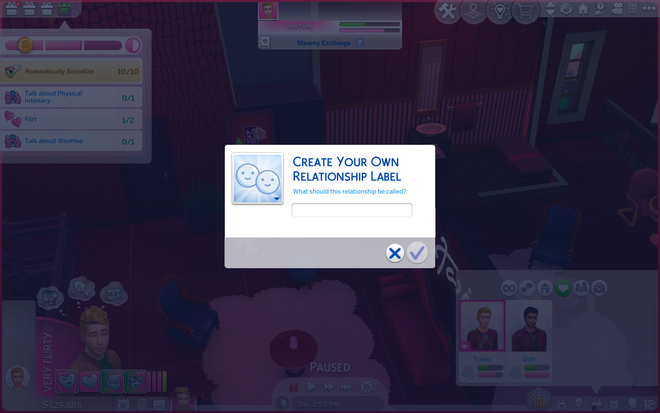
I quickly used my Sim to convince characters to change their minds about their relationship boundaries, too.
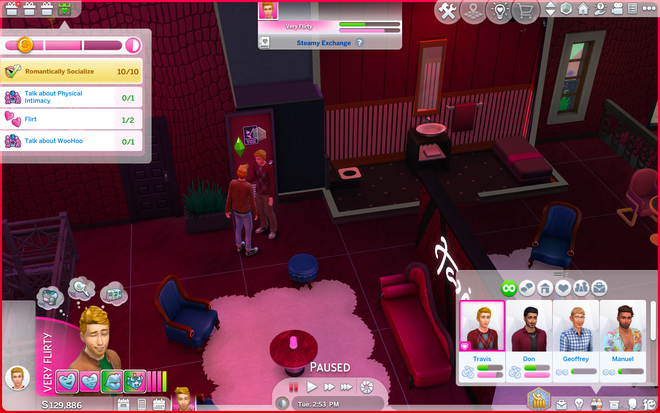
Sure, people change their minds about what they want, but it's rarely an overnight choice, let alone a split-second one like in this virtual world. Lovers in real life face judgment from those who don't understand despite the fact monogamy is historically a newer institution to begin with. Just because it's less taboo now doesn't make it a non-issue, either.
Non-monogamy will only be an big deal as long as people make it one. If people happily pursue these relationships, why should anyone stop them?
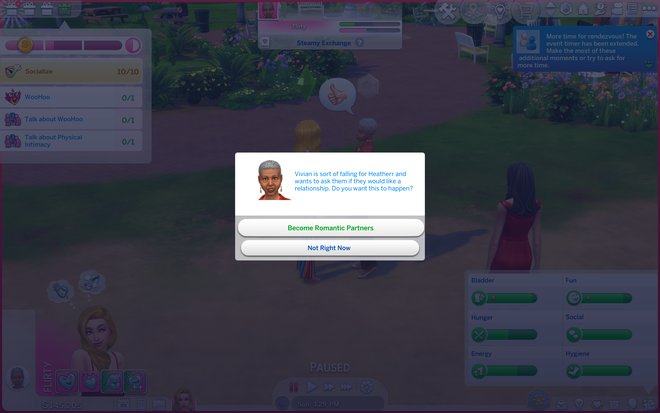
In case you missed:Polyamory, pregnancy and the truth about what happens when a baby enters the picture
What polyamory in the virtual world teaches us
That said, the game was, dare I say, way more fun to play than when I was younger. Sure, I could create drama – and unintentionally did so after I forgot someone was still prone to jealousy, which I quickly switched off – but I didn't feel the need to. I was too busy thinking about all the different ways relationships could look. Maybe because my own understanding of relationships had changed. Now I finally had the tools to make it happen and play it out.
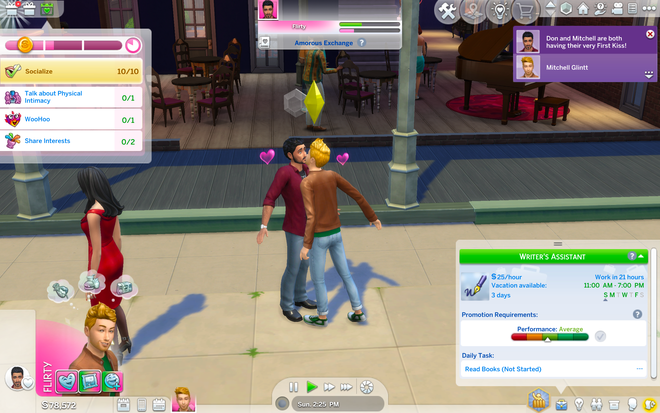
It also felt exhausting trying to manage all these relationships, even though it was cool seeing them develop – something I gather from sources, too. As engaging as it was here, and while the idea of it in real life is certainly intriguing, it didn't feel like a fit for me; I'm in a monogamous relationship, and I feel stretched thin just trying to navigate time between my boyfriend, friends and each other's friends. I understood more clearly why polyamorous couples keep cohesive calendars and spend so much time communicating. Without extra communication and boundary-setting from all partners, these types of relationships don't work anywhere.
I recommend people try out playing for themselves. Who knows what you could learn about your own relationship wants and need in the process? On the other hand, you also don't need to think too deep. Be the Sim you wish to see (or never see) in the world.
Disclaimer: The copyright of this article belongs to the original author. Reposting this article is solely for the purpose of information dissemination and does not constitute any investment advice. If there is any infringement, please contact us immediately. We will make corrections or deletions as necessary. Thank you.







